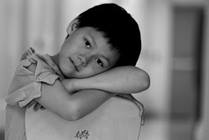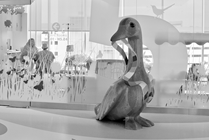Search Results
Viewing: 121-130 of 11822 | All

Condition
Hip Dysplasia
Hip dysplasia, also known as developmental dysplasia of the hip (DDH), is an issue that is present at birth. In a child with DDH, the hip socket is shallow. As a result, the head of the femur may slip in and out. It may dislocate. This means it moves partly or completely out of the hip socket.

Condition
Mononucleosis (Infectious)
Infectious mononucleosis, also known as “mono” or "the kissing disease," is an illness usually caused by the Epstein-Barr virus (EBV). Some cases are caused by a virus called cytomegalovirus (CMV). The virus is contagious and spreads when someone comes in contact with an infected person’s saliva.

Condition
Failure to Thrive
Failure to thrive (FTT) is a term that is traditionally used for children who have failed to develop and grow normally. FTT occurs when a child is either not receiving enough calories or is unable to properly use the calories that are given, resulting in failure to grow or gain weight.

Condition
Spontaneous Pneumothorax
This Helping Hand™ covers a spontaneous pneumothorax, which usually happens when a weak part of the lung is leaking air. These areas are like blisters on the lungs, called blebs. They can burst and leak air into the pleural space.

Condition
Tenosynovial Giant Cell Tumors
There are three kinds of tenosynovial giant cell tumors (TGCTs). One type grows in the tissue that lines the joints (synovium). The second kind grows in the area that cushions the joints and tendons (bursa). The third type grows in the lining around the tendons (tendon sheath).

Condition
Allergy to Mold
This Helping Hand™ covers mold, which is a fungus that can be found almost anywhere, both indoors and outside. Only a few types of mold cause an allergic reaction. Mold seeds (or spores) get into the air and are then breathed in.

Condition
Ranula
A ranula is a fluid collection or cyst that forms in the mouth under the tongue. It is filled with saliva that has leaked out of a damaged salivary gland. If a ranula stays in the mouth underneath the tongue it is called a simple ranula. If it grows down into the neck it is called a plunging ranula.

Condition
Precocious (Early) Puberty in Children
This Helping Hand™ is about early puberty in children. Sometimes, puberty can start earlier and before signs show.


